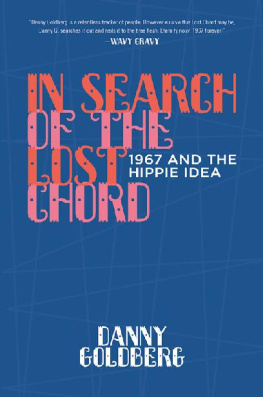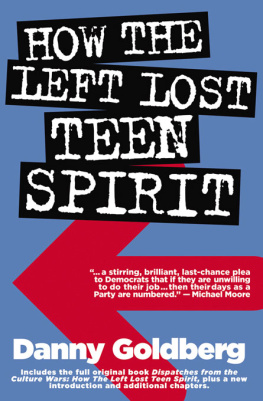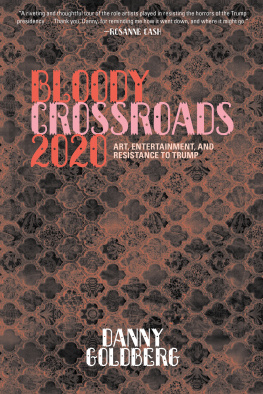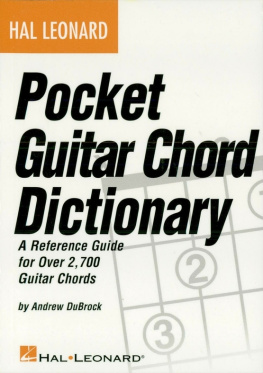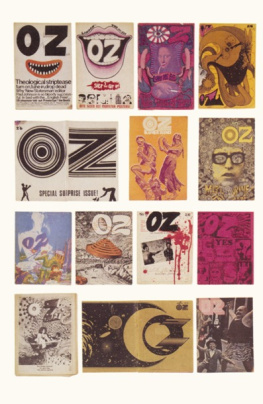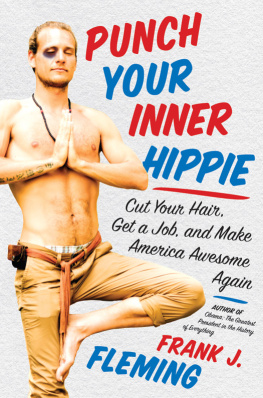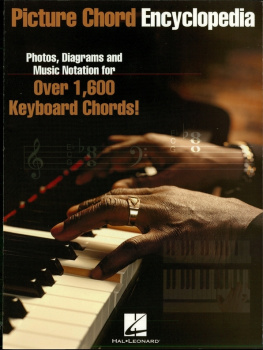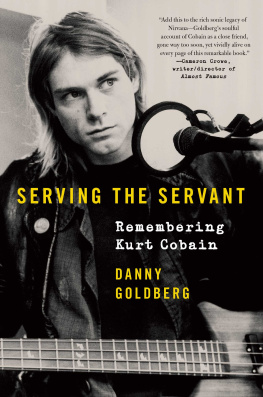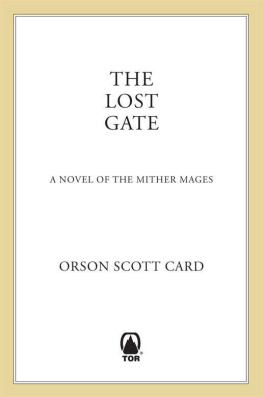Danny Goldberg - In Search of the Lost Chord: 1967 and the Hippie Idea
Here you can read online Danny Goldberg - In Search of the Lost Chord: 1967 and the Hippie Idea full text of the book (entire story) in english for free. Download pdf and epub, get meaning, cover and reviews about this ebook. year: 2017, publisher: Akashic Books, genre: Art. Description of the work, (preface) as well as reviews are available. Best literature library LitArk.com created for fans of good reading and offers a wide selection of genres:
Romance novel
Science fiction
Adventure
Detective
Science
History
Home and family
Prose
Art
Politics
Computer
Non-fiction
Religion
Business
Children
Humor
Choose a favorite category and find really read worthwhile books. Enjoy immersion in the world of imagination, feel the emotions of the characters or learn something new for yourself, make an fascinating discovery.
- Book:In Search of the Lost Chord: 1967 and the Hippie Idea
- Author:
- Publisher:Akashic Books
- Genre:
- Year:2017
- Rating:5 / 5
- Favourites:Add to favourites
- Your mark:
- 100
- 1
- 2
- 3
- 4
- 5
In Search of the Lost Chord: 1967 and the Hippie Idea: summary, description and annotation
We offer to read an annotation, description, summary or preface (depends on what the author of the book "In Search of the Lost Chord: 1967 and the Hippie Idea" wrote himself). If you haven't found the necessary information about the book — write in the comments, we will try to find it.
In Search of the Lost Chord: 1967 and the Hippie Idea — read online for free the complete book (whole text) full work
Below is the text of the book, divided by pages. System saving the place of the last page read, allows you to conveniently read the book "In Search of the Lost Chord: 1967 and the Hippie Idea" online for free, without having to search again every time where you left off. Put a bookmark, and you can go to the page where you finished reading at any time.
Font size:
Interval:
Bookmark:

For Paul Krassner, Wavy Gravy, and Ram Dass
Table of Contents
___________________
INTRODUCTION
There is a mysterious cycle in human events, my parents idol Franklin Delano Roosevelt proclaimed in the speech in which he also said that their generation had a rendezvous with destiny. The mystery that informed my own adult life revolves around a different rendezvous several decades after Roosevelts speech. I was sixteen and wide-eyed and there really was a moment when peace and love was not meant or taken ironically. In terms of mass popular American culture, that moment peaked in 1967. Where did it come from? Where did it go?
The hippie movement that swept through the Western world was like a galloping horse in the wild. A few dozen people were able to ride it for a while, some even steering it for a brief period, but no oneno philosopher, no spiritual figure, no dope dealer, no songwriter or artist, and certainly no political leaderever controlled it. It was the original open source. From the influence of psychedelics to a widespread rebellious ethos that resisted any kind of authority within various countercultures, the era can only be understood through a collection of disparate, sometimes contradictory narratives.
David Crosby, Paul Kantner, and Robin Williams are among those who have been credited with the saying, If you remember the sixties, then you werent really there. The quote is usually deployed as a laugh line, as if anyone truly immersed in hippie culture would have been so stoned that they would have forgotten it all.
On the other hand, perhaps some chose not to talk about certain nuances that seemed too fragile to survive in the public air. In The Varieties of Religious Experience, William James suggests that one quality of a mystical experience is the impossibility of describing it. Yet hints can be found.
The sixties is a hybrid of the civil rights and antiwar movements combined with a mystical spirit that worked through some extremely fallible humans. Allen Cohen, a founder and editor of the San Francisco countercultural newspaper the Oracle , referred to hippies as a prophetic community. But they were not, for the most part, formally religious or even well behaved. There is no doctrine, just thousands of stories, and a lingering vibe.
I graduated from Fieldston High School in New York City in 1967, and the sixties had a lasting influence on me and many of my closest friends from that time. I attended the University of California, Berkeley, briefly ( very briefly), and by the end of 1968 had begun my career in the rock-and-roll business, an industry that itself owes much of its success to sixties culture.
I refer to a lost chord in the title of this book because whatever it was in 1967 was the result of dozens of separate, sometimes contradictory notes from an assortment of political, spiritual, chemical, demographic, historical, and media influences that collectively created a unique energy. It should go without saying that no two people perceived the late sixties in the same way, and that the space limitations of a single volume and my own myopia require me to leave out far more than I include.
This is a subjective and highly selective history, an attempt at trying to remember the culture that mesmerized me, to visit the places and conversations I was not cool enough to have been a part of.
My perspective is that of a straight white male New Yorker from a mostly secular Jewish family. I did very little research on countercultural developments outside of London, California, and New York, the places that fired my imagination at the time. I had little awareness of many vibrant cultural spheres including art, literature, and fashion, limitations that are obvious in my narrative.
Political struggles both on the street and in the corridors of government were central to the era. However, I disagree with numerous left-wing historians who view the hippie phenomenon as a secondary sideshow revolving around escapism that did more harm than good to what they regard as the serious aspects of the sixties. This conventional lefty wisdom ignores the mystical aspects of the counterculture that were intertwined with protest and reform.
Yet, even though many of us were a lot more into LSD than SDS, the overwhelming shadow of the military draft affected tens of millions of young men and their families. There was a widespread loss of faith in authorities who advocated obedience to a Cold War foreign policy. The cauldron of social readjustments for both blacks and whites in the wake of a long overdue dismantling of racist Jim Crow laws was intense. (Needless to say, many Americans of other ethnicities, including Latinos, Native Americans, and Asians, had their own challenges and journeys, but in the cultures of 1967 that reached my teenage brain it was the black/white relationship that predominated.)
The lost chord I am seeking had many other notes in it as well. After all, men in the United Kingdom were not called upon to fight in Vietnam; notwithstanding its colonial karma, the UK did not have racial tensions comparable to Americas. Yet there is no version of the sixties in which British rockers like the Beatles, Cream, and Donovan, radical therapists like R.D. Laing, writers like Bertrand Russell, and fashion icons like Mary Quant, were not integral figures. Millions of European, Australian, Canadian, and American teenagers felt they had more in common with each other than they did with anyone else.
In talking to dozens of people of my generation who were affected by the hippie idea, there is a near universal recollection of a period of communal sweetness. There was an instant sense of tribal intimacy one could have even with a stranger. The word that many used was agape, the Greek term that distinguishes universal love from interpersonal love.
One personal story I like to tell about the sixties took place in the San Francisco airport in 1967 when I was trying to get on a plane back to New York to see my family for Thanksgiving. I was barefoot and was told by an unpleasant airline employee that I could not board without shoes. With little time to spare, I scanned the airport and made a beeline toward a young guy with long hair who looked cool to me. I explained my predicament and asked if he would lend me his shoes for the flight, and gratefully accepted them when he agreed without a moments hesitation. I am still not sure what is more remarkable, the fact that he gave his shoes to a stranger or that I had the certainty that he would do so. I am equally certain that this would not have been possible a year later.
The word hippie morphed from a brief source of tribal pride to a cartoon almost immediately. Ronald Reagan, who began his first term as governor of California in 1967, said, A hippie is someone who looks like Tarzan, walks like Jane, and smells like Cheetah.
Most of the mainstream liberal establishment of the time was almost as dismissive. In August of 1967, Harry Reasoner delivered a report for the CBS Evening News in which he referred to the Haight-Ashbury section of San Francisco as ground zero of the hippie movement. After an interview with members of the Grateful Dead, Reasoner questioned the premise that hippies were doing anything to make the world a better place: They, at their best, are trying for a kind of group sainthood, and saints running in groups are likely to be ludicrous. They depend on hallucination for their philosophy. This is not a new idea, and it has never worked. And finally, they offer a spurious attraction of the young, a corruption of the idea of innocence. Nothing in the world is as appealing as real innocence, but it is by definition a quality of childhood. People who can grow beards and make love are supposed to move from innocence to wisdom.
Next pageFont size:
Interval:
Bookmark:
Similar books «In Search of the Lost Chord: 1967 and the Hippie Idea»
Look at similar books to In Search of the Lost Chord: 1967 and the Hippie Idea. We have selected literature similar in name and meaning in the hope of providing readers with more options to find new, interesting, not yet read works.
Discussion, reviews of the book In Search of the Lost Chord: 1967 and the Hippie Idea and just readers' own opinions. Leave your comments, write what you think about the work, its meaning or the main characters. Specify what exactly you liked and what you didn't like, and why you think so.

